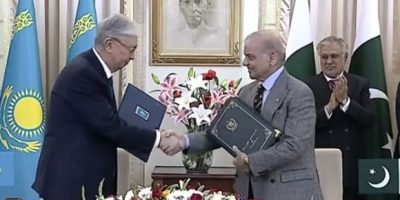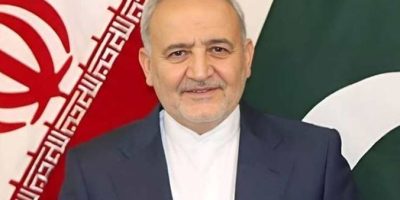Govt, CSOs partnership important for country’s development: Speakers

ISLAMABAD, JAN 16 (DNA) – It is time for the government to consider civil society organizations (CSOs) as partners for development of the country. The policy measures need to be based on facilitation for the sector rather than over-regulations.
The speakers including the representatives from the government and leading voices of civil society in Pakistan said this while sharing their views with the participants of a webinar on ‘The State of Civil Society in Pakistan’ jointly organized by the Sustainable Development Policy Institute (SDPI) and Pakistan Centre for Philanthropy (PCP).
Joint Secretary INGOs/NGOs, Economic Affairs Division (EAD), Government of Pakistan, Syeda Adeela Bokhari, informed the participants that the EAD regulates only those INGOs which receive financial contribution from the foreign countries and donors. “To ensure the accountability and financial transparency of the INGOs/NGOs, the ministry has devised a new draft policy which will be implemented after the formal approval from the Federal Cabinet,” Ms Bokhari said that the new policy is expected to respond to various issues and concerns of the sector. Besides, a web-portal is being created to facilitate online applications for registration of INGOs/NGOs with the EAD.
She said the new policy suggests curtailing time to 60 days for completion of the registration process. She said a record number of MoUs have been finalized during the last quarter. She said the EAD is open to civil society organizations and plans to facilitate those organizations that are doing good job. She called for a greater accountability and transparency in the sector.
Dr Attiya Inayatullah, former parliamentarian and Chairperson of the PCP’s research committee, on the occasion highlighted the role of civil society organizations and said that these organizations work for the development of the country and democracy. She said that CSOs in Pakistan are facing challenges at multiple fronts.
Hence, we need for unity of purpose among government, private sector and civil society as the third sector. She said “to bring a social change and to achieve the goal of sustainable development, the vibrant role of CSOs is the need of the hour,” Dr Attiya said while emphasizing that the government must engage civil society as an important equal partner in development.
President ZABIST, Ms Shahnaz Wazir Ali, was of view that the government should not be just a regulator, but it should be a facilitator to the CSOs to make them an equal partner in the development and social uplifting. The challenges such as over-regulation and over-documentation for working of CSOs should be addressed to create an enabling environment for them to serve the society.
Dr Shafqat Munir, Research Fellow at SDPI, said government and civil society should have a close coordination and work together for sustainable growth and development of the country.
Ms Shazia Maqsood Amjad, Executive Director PCP, said the government needs to be cognizant of the problems the CSOs have been facing in terms of the financial and social spheres. She said the PCP provides CSOs the certification which help them get Non-Profit Organization (NPO) status from the Federal Board of Revenue (FBR).
Ms Ayesha Khan, Country Director Hashoo Foundation, while highlighting the role of CSOs in ensuring the sustainable development, said that these organizations also provide a platform for the people that are less represented. She said CSOs have been having issues in terms of reporting at multiple levels and under multiples laws including various taxation regimes. They have to have no objection certificate (NOC) for each project through a touch process. She said CSOs welcome monitoring and transparency related measures but there should not be a negative perception of civil society organization.
The Country Director Democracy Reporting International (DRI), Mr Javed Ahmed Malik, highlighted that over-regulation is hampering role of CSOs in the development of the country. Similarly, CSOs should ensure transparency at all levels. He said that the misconception and mistrust regarding NGOs/INGOs should also be addressed. He suggested that EAD and PCP should work hand in hand to handle matters relating to CSOs.
Dr Roomi S. Haya, Chairman Pakistan National Committee of IUCN, emphasized on the need of addressing trust deficit between the government and the CSOs. He said that CSOs in the country are facing identity crisis as well due to relatively tough policies for the non-profit organizations as compared to the private sector. He suggested that the government, CSOs and other stakeholders should talk to each other to make each other’s role vibrant for development of the country.=DNA
===============
Related News

PM Shehbaz eyes $1bn trade volume as Pakistan, Kazakhstan ink over 30 MoUs
ISLAMABAD: Prime Minister Shehbaz Sharif on Wednesday urged an increase in trade volume between PakistanRead More

Iranian envoy meets CM Punjab
DNA LAHORE, FEB 4: President Pakistan Muslim League-N Muhammad Nawaz Sharif along with Chief MinisterRead More


Comments are Closed